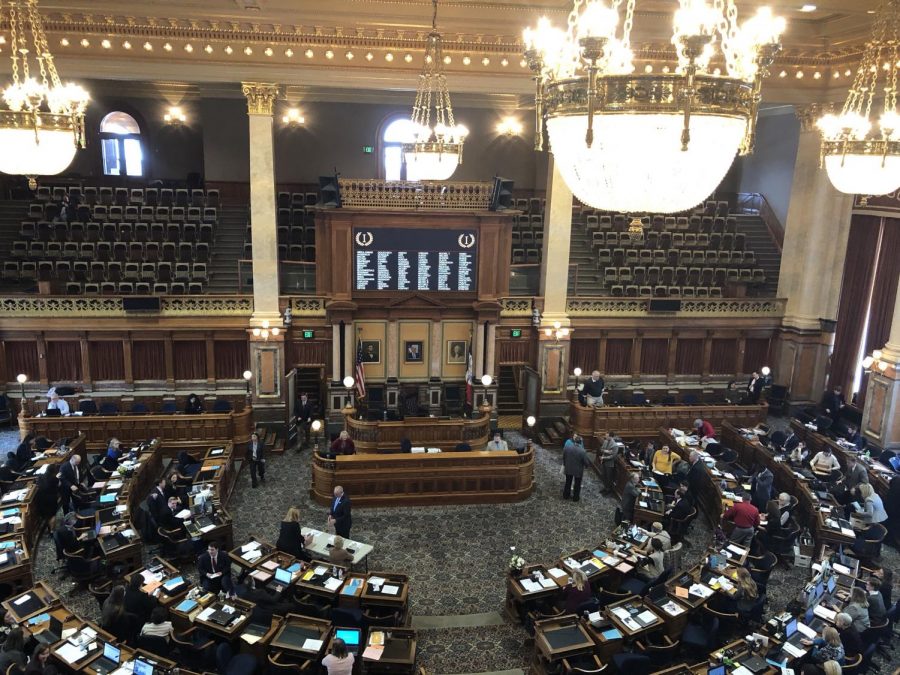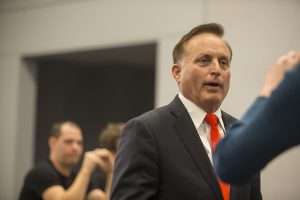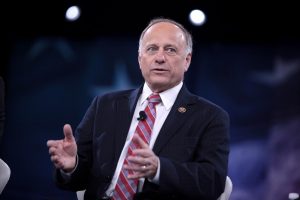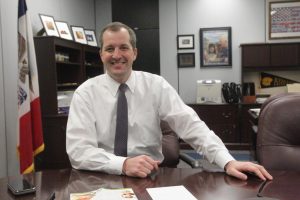2019 Iowa legislative session gavels in with focus on bipartisan cooperation
The 2019 legislative session brings new members and an emphasis on mental health, education funding, and workforce training.
The Iowa Legislature gaveled in Monday, Jan. 14, 2019 to start the 2019 legislative session. Top issues Republican leadership and area legislators have identified include reducing taxes and government oversight, mental health, and felon-voting reform.
January 14, 2019
DES MOINES — The halls of the State Capitol bustled with anticipation on Jan. 14 as state legislators, officials, and staff settle in for the 2019 legislative session.
Monday marked the first day of the 88th Legislature, which included greetings, speeches, and discussions of setting policy. Mental-health issues, education funding, water quality, and felon-voting rights remain some of the most prominent bipartisan issues gaining momentum among legislators.
RELATED: Iowa’s road to restoring the right to vote to felons
Rep. Bobby Kaufmann, R-Wilton, the chair of the State Government Committee, which oversees much of the legislation that passes through the chamber, said many of the legislators feel optimistic about the new session. He believes there are several issues legislators of both parties can address together.
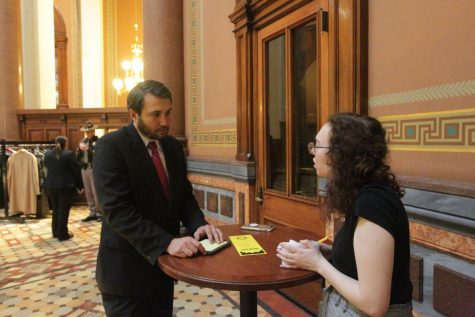
Rep. Bobby Kaufmann, R-Wilton, speaks with The Daily Iowan on Jan. 14, the first day of the 2019 Iowa legislative session.
“It’s like the beginning of a sports season. We’re looking forward to working together and to see if that maintains,” Kaufmann said. “You’re back, you’re seeing people you work with, you come brimming full of new ideas.”
Kaufmann said water quality, mental health, and education funding are prominent issues emerging among lawmakers of both parties.
“Mental health, specifically mental health for children, is something that I think is going to be very bipartisan,” Kaufmann said. “Improving on our education spending is something we can work together on. I think that we made some strides in water quality last year, and I’d like to see those continued and strengthened.”
However, Sen. Joe Bolkcom, D-Iowa City, said it remains to be seen exactly how issues will progress. He said he plans on filing a variety of bills on different subjects and hopes to work to achieve more support for public higher education, community college, and K-12 education.
Iowa’s community colleges and three public universities suffered a decline in funding in the last session, though K-12 education received a slight bump in support.
Freshman Sen. Zach Wahls, D-Coralville, defined his first day on the job as getting up to speed, listening to speeches, and receiving seating assignments. Like Kaufmann, Wahls also identified improving the mental-health system and funding the water-quality bill — the first bill Kim Reynolds signed last session after stepping into her role as Iowa governor — as upcoming issues.
RELATED: Report finds lack of urgency in addressing Iowa’s water quality
Rep. Mary Mascher, D-Iowa City, and Rep. Dave Jacoby, D-Coralville, said they are especially excited about the impact of new members in the Iowa Legislature. There are 22 new members serving in the House and nine in the Senate this session.
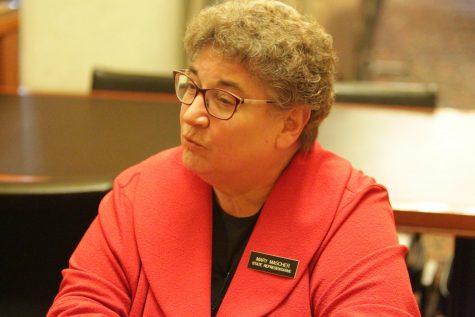
State Rep. Mary Mascher, D-Iowa City, speaks on the first day of the 2019 Iowa legislative session Jan. 14.
House Minority Leader Todd Prichard, D-Davenport, noted in his morning remarks that this session is the first in which women make up the majority of the House Democratic caucus.
“It’s a remarkable achievement and another step forward making sure that this body reflects the people of Iowa that we represent,” he said.
Jacoby said this will bring a new perspective to the floor. Overall, there is a record 45 women serving in the Iowa Legislature this year.
“We’ve got five new women that are in urban areas, and this is their first opportunity to see the Legislature in action,” Mascher said.
RELATED: Women, politics, and change
Both the Senate and the House convened this morning around 10 a.m. with formalities and speeches from legislative leaders.
Looking forward to the upcoming session, Senate Majority Leader Jack Whitver, R-Ankeny, said in his opening remarks top priorities will target building Iowa’s workforce, reducing taxes, and reducing government dependence in Iowa.
“Our mission is simple: improve the lives of Iowans through challenging the status quo and reforming Iowa for the next generation,” he said.
Jacoby said he hopes Monday’s speeches indicate a move toward more moderate policy and increased cooperation between parties.
“Last General Assembly, more than 88 percent of the bills passed were bipartisan,” said House Majority Leader Chris Hagenow, R-Windsor Heights. “I am hopeful we can move that number even higher.”



